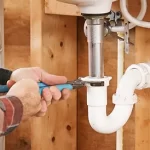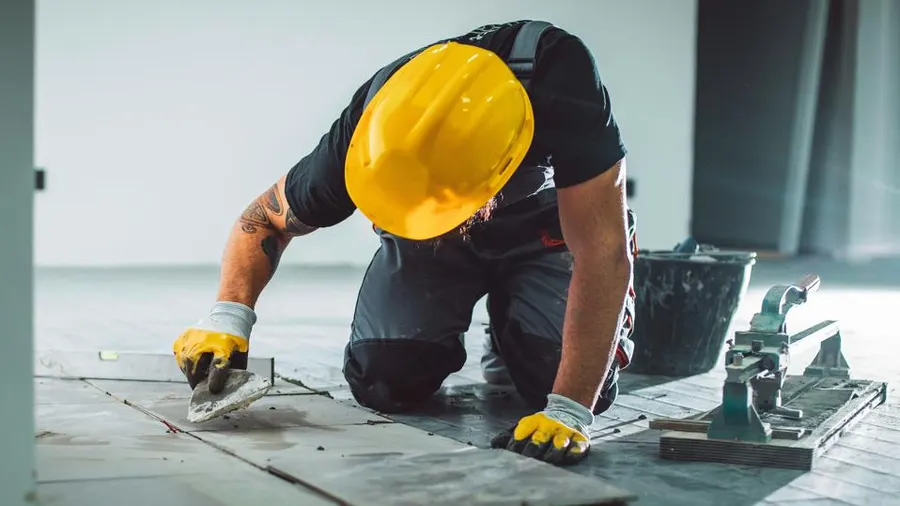Renovating your home is an exciting but often stressful experience. Whether you’re looking to remodel your kitchen, add a new room, or give your house a modern facelift, the right contractor can make all the difference. Finding a reliable and skilled contractor is crucial to ensure that the project is completed on time, within budget, and with quality craftsmanship. In this blog, we’ll guide you on how to find a contractor for home renovations.
Why Hiring the Right Contractor is Essential
Before we dive into the process of finding a contractor, let’s first understand why hiring the right one is important. A competent contractor ensures that your renovation project adheres to building codes and regulations, helps manage timelines and budgets, and communicates effectively to avoid misunderstandings. On the other hand, a bad contractor can result in shoddy workmanship, delays, and unexpected costs, potentially turning your dream project into a nightmare.
1. Define Your Project and Budget
Before starting your search, it’s essential to clearly define your renovation project. Are you remodeling a bathroom, renovating the kitchen, or making structural changes to your house? The scope of the project will determine the type of contractor you need.
Next, set a realistic budget. Having a clear idea of how much you’re willing to spend will help you communicate your expectations to potential contractors. Ensure to set aside a contingency fund (usually 10-15% of the total budget) for unexpected costs that may arise during the project.
2. Get Recommendations
One of the most reliable ways to find a good contractor is through word-of-mouth referrals. Ask friends, family, neighbors, and coworkers if they’ve had any positive experiences with contractors. People you trust can give you honest feedback about the contractor’s performance, punctuality, pricing, and professionalism.
You can also ask for recommendations from local hardware stores, suppliers, or real estate agents who may have experience working with contractors in your area.
3. Search Online
In today’s digital age, the internet offers countless resources to help you find contractors. Websites like Angie’s List, HomeAdvisor, and Houzz provide directories of local contractors along with ratings and reviews from previous clients. Searching for a “local home renovation contractor” in your area will give you multiple options to compare.
Check the contractors’ websites, portfolios, and testimonials. Focus on contractors with extensive experience in the type of project you’re planning. Don’t forget to check for certifications, licenses, and insurance coverage, which are crucial for any home renovation project.
4. Verify Credentials and Licensing
When it comes to home renovation, licensing and certifications are non-negotiable. A licensed contractor ensures that they meet the minimum requirements to work in your area. Before hiring, always verify the contractor’s license and ask for proof of insurance. This step will protect you from liability in case of accidents or damage to your property during the renovation.
Additionally, if your project requires specialized skills, look for contractors with the appropriate certifications. For example, if your project involves electrical work, ensure the contractor is certified in electrical services.
5. Check References and Reviews
Once you have a shortlist of potential contractors, it’s important to dig deeper into their work history. Ask each contractor for at least three references from past clients who had similar projects done. Contact those clients to ask about their overall experience, the quality of the work, and whether the project was completed within the agreed timeline and budget.
Online reviews can also provide valuable insights. While it’s normal to see a few negative reviews, a pattern of complaints should be a red flag.
6. Compare Quotes
After you’ve narrowed down your list to a few contractors, request detailed written estimates for your project. The quote should include a breakdown of labor costs, materials, timelines, and payment schedules. It’s tempting to choose the contractor with the lowest bid, but remember that price is not the only factor to consider. A lower price may indicate lower-quality materials or less experienced labor, which could lead to costly mistakes down the road.
Make sure to compare quotes for similar materials and scopes of work. A reputable contractor will be transparent about costs and willing to explain any discrepancies between their estimate and those from other contractors.
7. Schedule Interviews
Before making your final decision, schedule in-person or virtual interviews with each contractor. During the interview, ask about their past experience with similar projects, how they handle unexpected issues, and their preferred methods of communication.
Some useful questions to ask during the interview include:
- How long have you been in the business?
- Have you worked on similar projects?
- How do you handle delays or cost overruns?
- Will you be personally overseeing the project, or will someone else handle it?
Pay attention to how the contractor responds to your questions. Clear communication and a positive rapport are essential for a successful project.
8. Get Everything in Writing
Once you’ve selected a contractor, the next crucial step is to get everything in writing. This includes a detailed contract that outlines the scope of work, timelines, materials, payment schedule, and any warranties. The contract should also specify how any changes to the project will be handled.
Never start a renovation project without a contract in place. This legal document protects both you and the contractor, ensuring that there are no misunderstandings or disputes during the project.
9. Monitor Progress and Stay Involved
Even after hiring a reliable contractor, it’s essential to stay involved in the project. Regularly check in on the progress, ask for updates, and address any concerns as they arise. By staying proactive, you can catch potential issues early on and ensure that the project stays on track.
It’s important to trust your contractor’s expertise, but don’t be afraid to ask questions or request modifications if necessary. Remember, it’s your home, and your satisfaction should be the top priority.
Conclusion
Finding the right contractor for your home renovation project can take time and effort, but it’s worth it to ensure a smooth and successful renovation experience. By following these steps — defining your project, seeking recommendations, checking credentials, and comparing quotes — you can find a trustworthy contractor who will deliver high-quality results. Don’t forget to get everything in writing and stay involved throughout the process for the best outcome.








